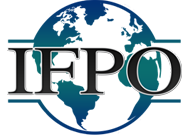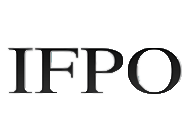Michael Stroberger, CPO, CSS, CPP
December 1, 2000
Reprint Protection Officer News - Spring 2000
On June 22, 2000, the hotel at which I am responsible for security and safety was host to a series of functions organized by the Democratic National Committee, and attended by The President of The United States. The functions included a set of smaller "meet and greets," as well as a luncheon. All told, the guest count reached a maximum in the 280-290 range, with several additional staffers and committee personnel. For the guests, this was an exciting and memorable event. For those of us behind the scenes, it was the culmination of many days of planning, inspecting, meetings and compromises. The sign of a well designed event is a lack of challenges in the execution. For these guests, the event was as smooth as could be hoped for.
What went into this is a process which deserves some review and explanation.
More than a week prior to the event date, catering and conference services personnel were already in the preplanning phase of the event booking. At this time, the assistance of the support departments, inclusive of the Security Department, was sought, in an effort to begin answering the more functional questions of such an event. Following this, every aspect of the operation of the facility was examined.
It is important that the host facilities protective unit performs self-inspections, as they are the most familiar with the facility. For example: if the visiting protective detail were told that a series of access doors were lockable and alarmed, and later found out that the lock on one of them had failed due to metal fatigue, the week before their arrival, it would seriously damage the credibility of the protective force of the facility.
It is considerations such as these, which the facility must take into account. Yes, the protective unit and the building engineers should be performing audits and inspections on a continuous basis, even without such a visit scheduled, but the type and focus of the pre-event inspection is somewhat different. These are much more meticulous, and examine some aspects which might, under normal circumstances, not be examined more than on a yearly basis. Do these in advance, and have documentation on hand for the protective detail to examine. They will want to perform their own inspections, of course, but they will also see that you have taken this situation seriously. It is also best to have building plans, "As-Built" ideally, available for their inspection.
Another consideration is staffing. On the day that the Secret Service advised me, officially, of their desire to perform background checks of the staff, I was able to compile the work schedules for all of those areas. How was this done so fast? In our weekly staff meeting, a forum for all the various department heads of the hotel, I had warned my fellow leaders that this would occur. Once the official request was made, they were prepared to provide the required information, without pause. The following morning, prior to 10 am, I was in possession of the names, and biographical information which the USSS required to perform the checks. A note of caution is in order here. Do not burden them with the names and information of employees who will not be in the area, unless asked specifically to do so. Give them those people who will, or will probably, have direct contact with the principal. Explain to them your selection criteria, when presenting the list, and be prepared to either expand or reduce the scope, as they see fit.
Prior to the day of the event, prepare your staff for disruptions in normal traffic flow. There will be areas which they will not be permitted to enter, at various times, as a result of close proximity to the principal. In addition, they will be checked with magnetometers, at various points, and will have to allow for this delay in scheduling their movements. It is best to warn your staff also to avoid the carrying of anything which could be viewed as a weapon. Some individuals, in certain areas, have permits to carry concealed weapons, and some carry items which are designed to be both an everyday tool and a weapon. These will not be acceptable on the day of such an event. Again, this announcement was made in out hotel staff meeting, and was passed down to the line employees by the various department leaders.
Be prepared to block off elevators, for the exclusive use of the principal and his detail, as well as hallways and stairwells which are in the line of travel. All of these areas will be swept for hazardous devices, and must be kept clear, following those inspections. Forewarn those areas which might usually utilize the elevator(s) which will be held, as they will have to find an alternate method of travel.
Place one member of your team, ideally the senior member present, or yourself, at the disposal of the lead agent of the protective detail. Assuming you have good internal communications equipment, this person will be utilized as a primary source of contact with the building staff, if any specific needs arise. Chances are good that they will request someone be assigned in this capacity, but, again, having this planned out in advance is a sign of proactive preparation. If you could have this person greet the lead agent upon initial arrival, and cultivate a solid working relationship, your interactions will be far smoother, and more productive.
One final note. Remember at all times that your protective unit's reputation is one the line, as well. It is not uncommon for various managers, from other areas, to attempt to argue against certain security measures, which will cause them inconvenience. You will understand better than the Secret Service, how to handle this individual. Find a balance between the normal operation of your facility, and the maximum level of security possible. Keep in mind, though, the possible repercussions of an incident occurring on your property, which could have been prevented at the simple expense of some inconvenience.
Working with the Secret Service, and similar protective details, can be rewarding and enlightening, if handled in a professional manner. Be aware, at all times, that they do not have an unlimited budget, and make reasonable accommodations for this, when possible. Make note of their specific requests, and file this for future events. This forms a very good base checklist for your self-inspections, prior to future events of a similar nature. Make yourself available to them, then enjoy the event, the experience and the interactions.

